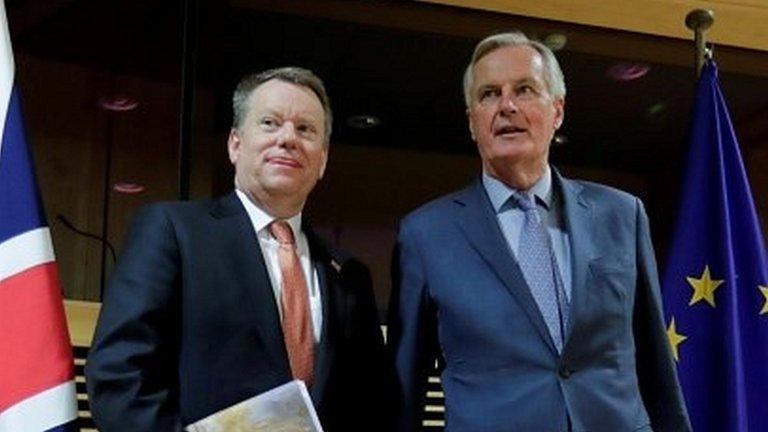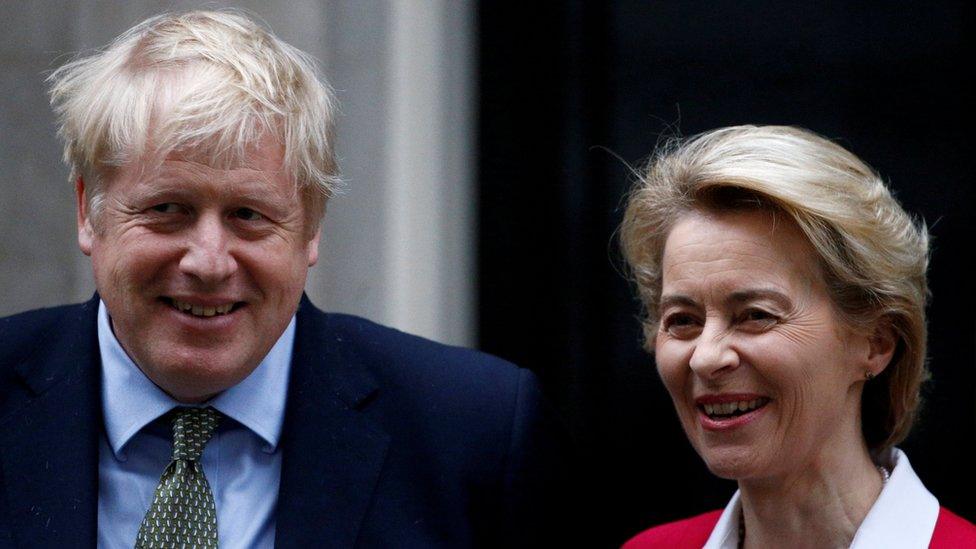Brexit: Trade negotiators meet, as deadline looms
- Published
- comments

Lord Frost and Michel Barnier's meeting happened with six days to go before Boris Johnson's deal deadline
EU chief negotiator Michel Barnier has met his UK counterpart in London for the latest round of talks on their post-Brexit trading relationship.
Downing Street said the meeting with Lord Frost - held with less than a week to go until the UK's deadline for agreeing a deal - had been "useful".
But differences remained on important issues, a spokesperson added.
A No 10 spokesman confirmed that informal discussions would resume in Brussels next week.
"We have had useful discussions this week," the spokesman said.
"Progress has been made in some areas, however there still remains differences on some important issues but we remain committed to trying to agree a FTA (free trade agreement).
"We continue to want an agreement, we continue to want an FTA but it is important that we can agree on some issues."
The talks came after European Council President Charles Michel said the sides were approaching "the moment of truth".
The UK's post-Brexit transition period, during which its trading relationship with the EU has remained the same, is due to end in December.
'Intensified engagement'
Prime Minister Boris Johnson has said the two sides should "move on" if nothing is agreed before the EU summit starting next Thursday.
If no deal is reached, the UK and EU would do business under World Trade Organisation rules, which would mean tariffs on goods.
Two issues in particular have become sticking points during the talks.
First, the EU wants the UK to follow closely its rules on state aid - financial assistance given by government to businesses - but the UK says it should not do so as an independent country.
Second, the UK wants full access to EU markets to sell its fish, but in return the EU wants full access for its fishing fleets to UK waters - which the UK does not want to provide.
Last weekend, Mr Johnson and European Commission President Ursula von der Leyen instructed their negotiators to "work intensively" to reach a deal.
On Thursday, Irish Prime Minister Micheál Martin said "movement" was required before "end-state negotiations" could begin.
He added that "the mood appears to have changed, and there's been more intensified engagement".
"But mood is one thing. It does need substance to follow the mood," Mr Martin said.
- Published3 October 2020

- Published2 February 2024
